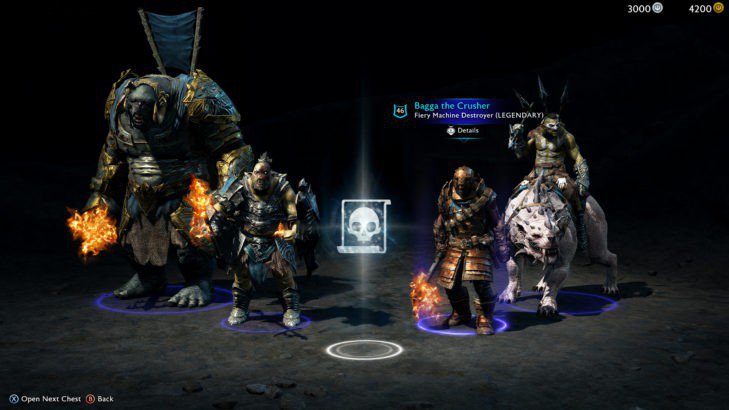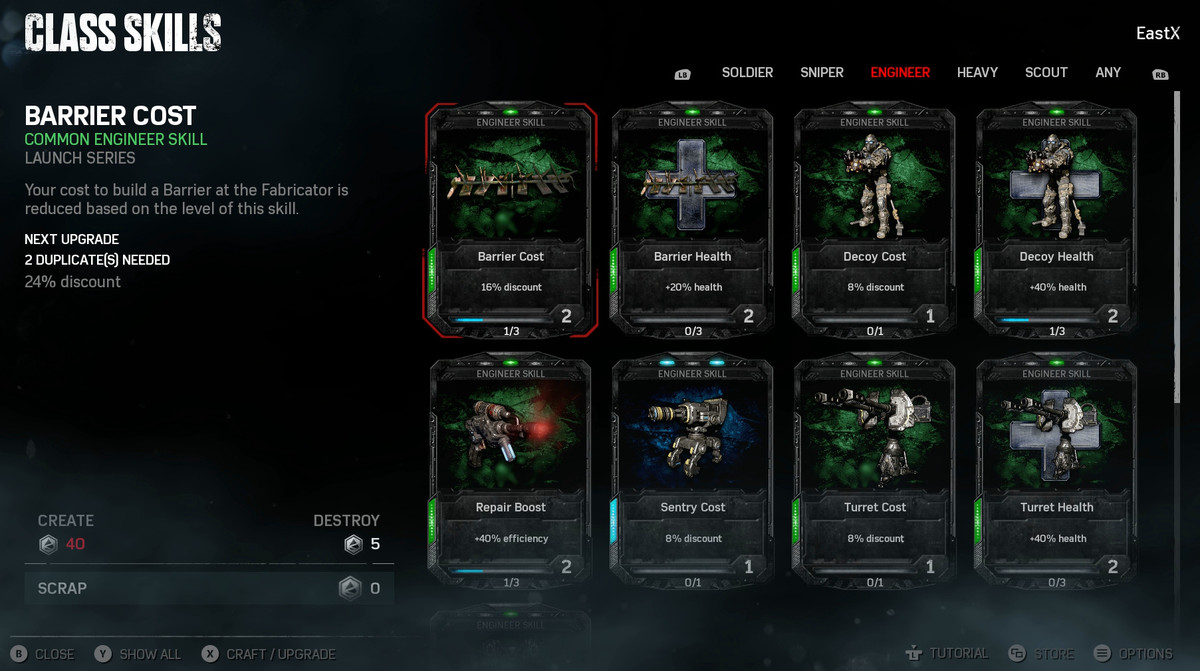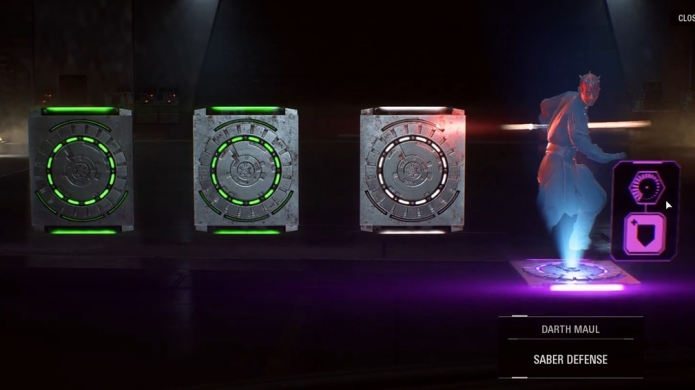They’re inescapable, they’re controversial, and they’ve permeated practically every genre of game available. I’m talking about Loot Boxes, and in a short space of time, they’ve gone from a new idea to “holy fucking shit, why is everyone doing it?”
Originally, they started out as a means for free-to-play MMO’s to earn some cash and give players exclusive items. So far, so good, but soon they began to filter into triple-A titles, albeit slowly. In 2012, Mass Effect 3 allowed players to purchase packs in its multiplayer mode which gave you items without having to do any in-game leg work.
Then in 2014, Battlefield 4 introduced the ability to purchase Battlepacks, which followed the same premise. Even FIFA’s Ultimate Team mode essentially revolves around the constant consumption of packs in order to obtain the best players, making us 3/3 for EA games with loot boxes of some kind. Who knew EA liked making money? Absolutely unheard of.

It’s only been in the past year or so that Loot Boxes have truly been utilising by gaming companies at large, with Overwatch, Gears of War 4, Halo 5: Guardians, the upcoming Star Wars Battlefront II and more getting on board the loot box “hype” train. But as more companies pile on the bandwagon, more and more critics are pushing back against it.
Just in the past week, prominent YouTuber John Bain spoke about his distaste of Loot Boxes. In a recent video, Bain goes as far as to say that the ESRB needs to regulate games according to their inclusion of loot boxes:
“Look, if you include these kind of mechanics in these games and you actually allow people to buy these packs for real money, these random blind packs and engage in what is essentially a form of gambling, then you should be jacking the rating of your game up to Mature.”
The idea of loot boxes as a form of gambling has been around for a while, and is essentially the truth. You aren’t guaranteed to get that skin you want, or the weapon parts you need to complete a loadout, therefore you are gambling real money into order to get the outcome you desire.
As far as regulating these games go, different countries have implemented various methods to combat the rising tide of loot boxes. China introduced regulation which forced developers to disclose the probability of items dropping in a loot box, with certain games only giving a 0.1% chance of earning an item. That’s 1 in 1000. If that’s the item you’re holding out hope for and you’re buying loot box after loot box, you are essentially gambling.

Unfortunately, as I was drafting this article, the ESRB spoke to Kotaku about how they don’t believe Loot Boxes to be gambling:
“While there’s an element of chance in these mechanics, the player is always guaranteed to receive in-game content (even if the player unfortunately receives something they don’t want). We think of it as a similar principle to collectible card games: Sometimes you’ll open a pack and get a brand new holographic card you’ve had your eye on for a while. But other times you’ll end up with a pack of cards you already have.”
It’s also worth noting that had ESRB offered a different opinion and said that loot boxes are gambling, most games would then be classified as an “Adults Only” game by the ESRB, which would mean that those games wouldn’t be sold by the majority retailers in the US. Making loot boxes a gambling practice would have ultimately forced developers and publishers to abolish loot boxes in order for their game to actually be sold. Alas, the practice is allowed to continue.
So what happens now? The line in the sand has been drawn. On one side, you’ve got publishers that are being proven time and time again that loot boxes are money earners. People respond to them, and it’s been proven psychologically. PC Gamer spoke to Dr Luke Clark of the Center for Gambling Research at the University of British Columbia, who said the following:
“The player is basically working for reward by making a series of responses, but the rewards are delivered unpredictably. We know that the dopamine system, which is targeted by drugs of abuse, is also very interested in unpredictable rewards. Dopamine cells are most active when there is maximum uncertainty, and the dopamine system responds more to an uncertain reward than the same reward delivered on a predictable basis.”

This was established by B.F Skinner in the 1930s, who conditioned animals to respond to certain stimuli in a closed box. Even after the stimuli was taken away, the animals would still respond in the hopes of recreating the same results and getting that same reward. Loot boxes operate in a similar fashion. You know you can earn that gold tier skin for Zarya, and you’ve earned one before in a previous loot box, so you keep earning and opening boxes in the hopes of getting the same result. Operant conditioning and reinforcement at its finest.
That’s one side of the line. The other side is the growing number of gamers and big names in the gaming industry who are taking a stand against loot boxes. John Bain has already been mentioned, and the acerbic Jim Sterling of the Jimquisition has long been a critic of the loot box practice. Pick one of his videos at random and he’ll likely be ragging on the system (to hilarious effect).
This side of the argument got some big help in the form of OpenCritic, who have pledged to include what they’ve deemed as “business model intrusiveness” as part of a game’s information. Whilst a system is still being formulated, they’re looking to include things like cosmetic vs actual power and whether or not you can purchase loot boxes with in-game currency or just earn them outright.
We're going to take a stand against loot boxes. We're looking into ways to add business model information to OpenCritic.
— OpenCritic (@Open_Critic) October 9, 2017
Typically, OpenCritic are a reviews aggregate website in a similar vein to Metacritic, so their decision participate in the loot box debate is an interesting one. Critics might say they should stick to compiling review scores, but the fact they’ll stand up for something they believe in is admirable, and should be commended. Clearly, OpenCritic live by the mantra of “be the change that you want to see in the world”. You know, the thing that Ghandi never actually said.
So where does this debacle leave the gamers? We’ve all got a choice to make. Either you can do nothing, continue to enjoy the games you want to play and engage with loot boxes if you want to, or you can take a stand and boycott any games you feel are too egregious in their usage of loot boxes. We’re not here to say that there is a definitive right and wrong answer, though we do think that games like the upcoming Star Wars: Battlefront II are going too far and have the very real danger of becoming “pay-to-win”. Ultimately, this is your choice, but this is becoming almost a battle for the soul of the gaming industry as a whole. No matter what you think, your choice matters.
Some of the coverage you find on Cultured Vultures contains affiliate links, which provide us with small commissions based on purchases made from visiting our site. We cover gaming news, movie reviews, wrestling and much more.



